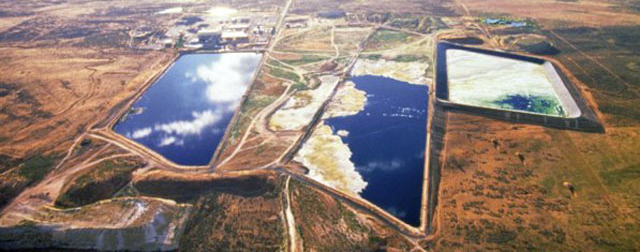Some information may be outdated.
Toronto-based Energy Fuels, which has plans to open a uranium mill in the Paradox Valley, has acquired Denison Mines’ U.S. operations, a move that cost around $100 million.
The acquisition was first announced in April, and the deal was wrapped up in late June. Curtis Moore, director of communications at Energy Fuels, said the acquisition makes Energy Fuels the largest producer of uranium and vanadium in the United States.
In the short term, he said, the deal will have little affect on the planned Piñon Ridge Uranium Mill in Paradox Valley, the stark and remote valley that sits in western Colorado near the Utah border. But it does mean that Energy Fuels now owns the White Mesa Mill in Blanding, Utah, as well as four or five operating mines in eastern Utah and western Colorado.
“What that means locally is that we now have a mill to process our ore without having to wait for Piñon Ridge to be built,” Moore said. “But Piñon Ridge still makes sense as a standalone project, and it is going to be built once we find a strategic partner to build it. That’s been the plan all along.”
Denison Mines is also based in Toronto. Its U.S. operations produce uranium in the region with a major part of the company’s assets being the White Mesa Mill, which is the only operating conventional uranium mill in the county. Along with continuing operations at the White Mesa Mill, Moore said plans are in place to expand the facility’s operations.
Energy Fuels also has plans to acquire additional uranium mines in the region, primarily in Utah, but much is hinging on the price of uranium, Moore said.
Denison’s working mines include the Beaver Shaft and Pandora mines near La Sal, Utah, as well as the Daneros Mill west of Blanding and a mill in northern Arizona. The company also employed around 400 people, who will now be working for Energy Fuels.
The acquisition means that Energy Fuels will now manage mining operations, a big change for the company. Energy Fuels’ has met opposition from Telluride, Colo.-based Sheep Mountain Alliance as well as the Towns of Telluride and Ophir and many residents in the eastern part of San Miguel County in Colorado. The proposed mill site is in Montrose County.
Sheep Mountain Alliance Project Coordinator Jennifer Thurston said her group will continue to challenge the Piñon Ridge project. She was unsure what the acquisition could mean locally.
“I think it’s fair to say that this deal with Denison and their acquisition of another mill in Utah does raise questions about what they plan for the Piñon Ridge mill,” Thurston said. “Do they really need two mills? The region right now has very little uranium mining activity. I have to question if they will ever need a mill in Paradox Valley.”
Moore said the company has also been working to raise money to continue its permitting and mining operations. He said over the past few weeks, Energy Fuels has raised around $30 million. Around $8.1 million came from a private investor in exchange for company stocks and options, while $22 million was from a prospectus offering, he said.
However, many uncertainties lay ahead for local uranium projects as well as the national industry.
Energy Fuels is currently waiting for the final approval of a state permit for the Piñon Ridge project. The permit is pending a court-ordered public hearing period, which the Colorado Department of Public Heath and Environment must conduct within 75 days of July 5.
The hearing period was required by a judgment in a Denver District Court case that was brought against the CDPHE by the Sheep Mountain Alliance and later by the Towns of Telluride and Ophir.
The groups claimed the CDPHE did not follow proper permitting procedures when the radioactive materials license was issued in 2011, and the Denver District Court agreed a public comment period had not been properly conducted. The permit is void until the comment period has concluded. A date has not been set for the hearing.
Appreciate the coverage? Help keep local news alive.
Chip in to support the Moab Sun News.





